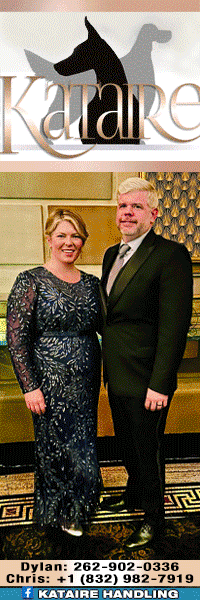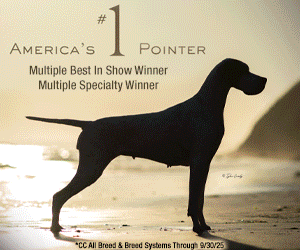From The Publisher
Click here to read the complete article
10 – November/December, 2014
by Tom Grabe
Here we go again. I know the end of the year is closing in because AKC is performing the annual changing of the Judging Approval Process. Just like the annual waterfowl migration south, or the daily changing of the guard at Buckingham?Palacie, it appears that AKC feels the need to change the approval process for judges on what seems to be a yearly basis.
I have been watching this go on for decades. They assemble blue ribbon panels of our best and brightest who then talk to those who matter all in the name of making judges better at their craft while assuring exhibitors that those who lack knowledge about the breeds they are applying for don’t get approved and advanced.
And you know what? We still have some judges who understand dogs and study the breeds they judge and do an exemplary job when placed in the center of the ring. We also have some who are average judges at best. Finally, we have some people who have no business judging dogs.
This is the way it has been for the thirty-plus years I have been involved in the sport. No matter what changes are made to the process, the end result is still the same. Albert Einstein said the definition of insanity is doing the same thing over and over again and expecting different results. Maybe AKC doesn’t want to be accused of being crazy so they keep changing the rules hoping for different results; but nothing ever changes.
Don’t get me wrong, I have read the new proposal and I think it contains some great ideas. But do we need 15 pages of requirements (single-spaced) in order to qualify our judges?
Giving credit for experience to longtime judges when they apply for new breeds makes sense. So does hands-on experience with the breeds applied for. The open book test, in my opinion, is a joke. If you fail the test because you answered the questions about disqualifications incorrectly, you should probably not judge, ever. How can you take someone seriously who doesn’t know DQs for a breed they want to judge and they can’t find them in an open book? They can’t apply again for six months? How about never?
Some of the proposals are necessary. I think changing the duties and oversight of the AKC representatives is a positive move. I never thought the reps should pass judgement on the placements of any judge. I also thought it was wrong that a rep questioned some judges about placements after an assignment then submitted reports to AKC about the judge’s ability based on that rep’s opinion. On the other hand, watching their procedure and ability to use a wicket, etc. is what they should be doing. Helping judges who ask to be mentored is a positive move.
Frankly, I think the Judges Approval Process is cumbersome and expensive for aspiring judges. I think that, in the end, we still have the same quality of judges that we had 30 years ago; the process is just more difficult now. Always favoring simplicity, I would probably require the judges to take a closed book test for the breed(s) they are applying for with a minimum of 75% of the questions answered correctly in order to receive approval. After that, I would turn them loose and let the market decide who’s qualified to judge and who’s not.
One final thought: instead of making the applicants attend workshops, specialties and other educational events, perhaps a one semester Ethics course might serve some of our judges better in their quest to become the best at their craft.
Short URL: http://caninechronicle.com/?p=64296
Comments are closed












